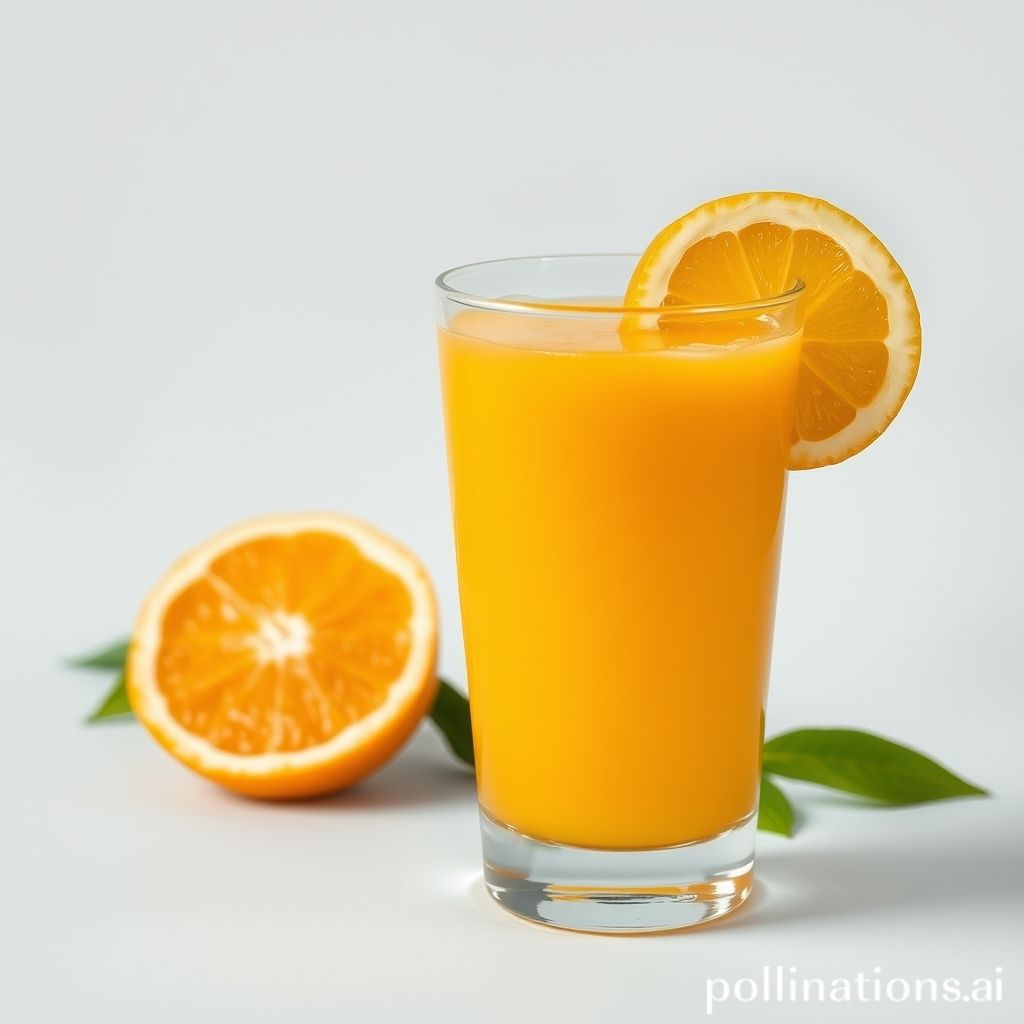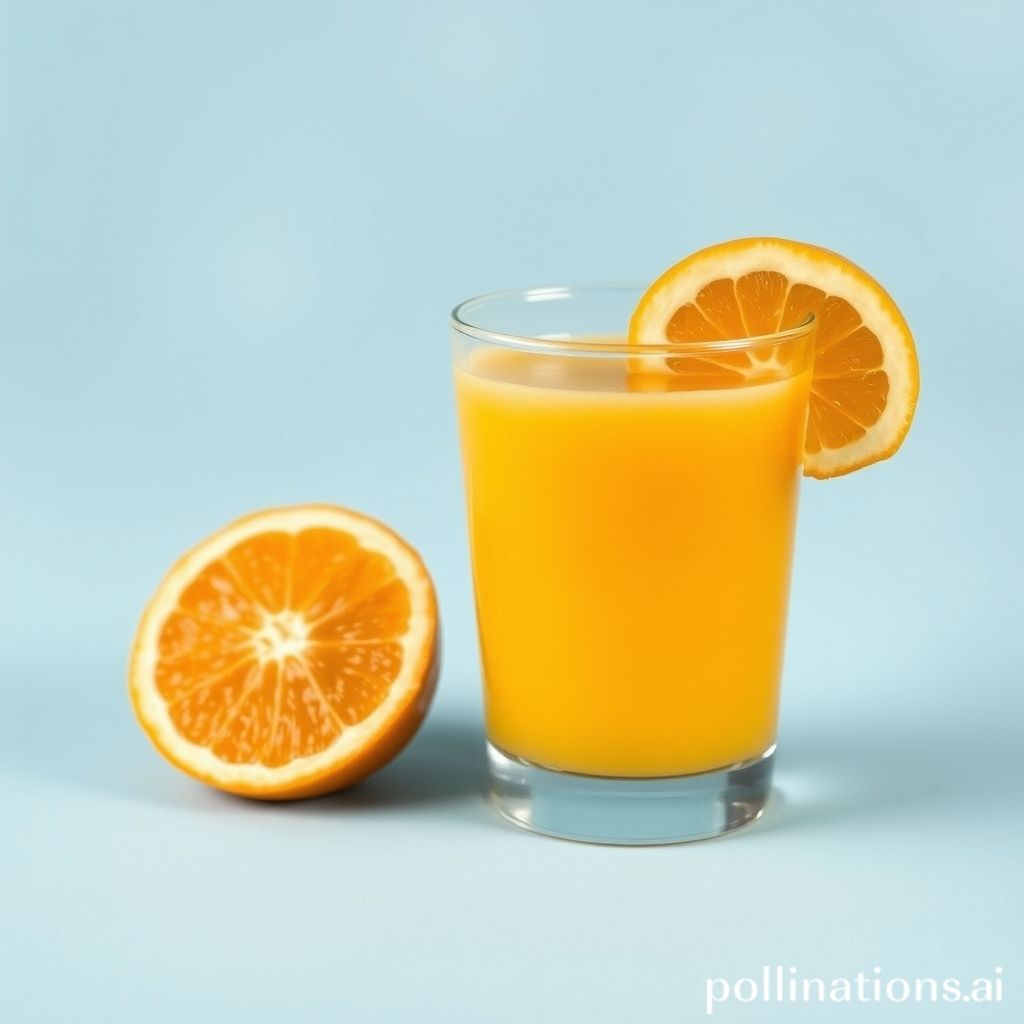Can Orange Juice Discolor Teeth? Find Out the Truth About Dental Staining
[su_note note_color=”#fb8e00″ text_color=”#000000″ radius=”12″]
When we consume orange juice, we may wonder if it has the potential to stain our teeth. People are curious about whether or not orange juice can cause discoloration or staining on their teeth.
It’s important to understand the potential effects of orange juice on dental health and how to prevent or minimize any staining that may occur. Researchers have even studied this topic to determine the safest and healthiest way to enjoy orange juice without compromising our dental appearance. Ready to explore the facts? Here are some key points to consider.
[su_box title=”
[/su_box]

Understanding Tooth Staining and Discoloration
1. Types of Tooth Stains
To address concerns about orange juice and tooth staining, it’s important to understand the different types of tooth stains. There are three main categories:
- Intrinsic Stains: These stains occur within the tooth’s inner structure, called dentin. They can be caused by factors like aging, certain medications, or excessive fluoride consumption.
- Extrinsic Stains: Extrinsic stains develop on the outer surface of the tooth enamel. Common causes include consuming highly pigmented foods and beverages, such as coffee, tea, and orange juice.
- Age-Related Stains: Over time, teeth can yellow due to the natural aging process. This happens as the enamel gradually thins, revealing the underlying dentin.
2. Causes of Tooth Staining
Several factors contribute to tooth discoloration:
- Pigmented Foods and Beverages: Certain foods and beverages contain highly pigmented molecules called chromogens, which can stick to the tooth enamel. Orange juice, being rich in natural pigments, can contribute to extrinsic tooth staining.
- Acidic Substances: Acidic foods and beverages, like orange juice, can erode the enamel, making it more susceptible to staining. The acid in orange juice softens the enamel, allowing pigmented compounds to penetrate more easily.
- Poor Oral Hygiene: Inadequate brushing and flossing can lead to the buildup of plaque and tartar, which can cause tooth discoloration over time.
- Tobacco Use: Smoking or chewing tobacco products can result in stubborn tooth stains due to the presence of nicotine and tar.
By practicing good oral hygiene and being mindful of the foods and beverages consumed, tooth staining can be prevented or minimized. Regular brushing, flossing, and dental check-ups, along with moderation in the consumption of pigmented foods and acidic beverages, can help maintain a bright smile.
[su_highlight background=”#f6b40f”]Expert Tips: Brush and floss regularly, limit pigmented foods and acidic drinks, and visit the dentist for check-ups to prevent tooth staining.[/su_highlight]
Does Orange Juice Cause Teeth Discoloration?
1. Effects of Orange Juice on Dental Health
Orange juice is a popular beverage enjoyed by many. It has various health benefits due to its high vitamin C content. Nevertheless, excessive consumption can negatively affect teeth.
2. Potential Staining Properties of Orange Juice
One concern people have is whether orange juice can cause teeth discoloration or staining. Orange juice contains natural acids like citric acid, which can erode the protective outer layer of the teeth called enamel. This erosion can lead to the exposure of the yellowish dentin underneath, resulting in a yellowish appearance of the teeth.
Furthermore, the pigments present in orange juice, such as anthocyanins and carotenoids, can also contribute to teeth staining. These pigments can bind to the enamel and cause noticeable discoloration over time.
To minimize the potential staining effects of orange juice, consider the following:
- Drink in moderation: Limit your consumption of orange juice to reduce the exposure of your teeth to its acids and pigments.
- Use a straw: When drinking orange juice, use a straw to minimize direct contact with your teeth.
- Rinse with water: After consuming orange juice, rinse your mouth with water to help wash away any residue and reduce the acidity in your mouth.
- Wait before brushing: Avoid brushing your teeth immediately after consuming acidic beverages like orange juice, as it can further weaken the enamel. Wait for at least 30 minutes before brushing.
- Maintain good oral hygiene: Brush your teeth twice a day with a fluoride toothpaste and floss daily to remove plaque and prevent staining.
| Pros | Cons |
|---|---|
| Rich in vitamin C: Orange juice is a good source of vitamin C, which is essential for overall health. | Potential teeth staining: Excessive consumption of orange juice can lead to teeth discoloration and staining. |
| Tasty and refreshing: Orange juice is a flavorful and refreshing beverage that many enjoy. | Acidic nature: The natural acids in orange juice can erode the enamel, leading to tooth sensitivity and other dental issues. |
| Hydrating: Orange juice can contribute to hydration due to its high water content. | High sugar content: Some commercially available orange juices may contain added sugars, which can be harmful to dental health. |
Preventing teeth staining from orange juice
1. Proper oral hygiene practices
Maintaining good oral hygiene is essential for preventing teeth staining from orange juice. Follow these tips:
- Brush your teeth at least twice a day using a fluoride toothpaste.
- Use a soft-bristled toothbrush to avoid damaging your enamel.
- Floss daily to remove plaque and food particles between your teeth.
- Consider using a whitening toothpaste or mouthwash to help remove surface stains.
2. Drinking orange juice in moderation
Meanwhile orange juice is a popular and nutritious beverage, consuming it in moderation can help prevent teeth staining. Here’s what you can do:
- Limit your intake of orange juice to one glass per day.
- Drink orange juice with a meal rather than sipping it throughout the day.
- Avoid holding orange juice in your mouth for extended periods.
- Consider diluting orange juice with water to reduce its acidity.
3. Using a straw when consuming acidic beverages
Using a straw can minimize direct contact between orange juice and your teeth, reducing the risk of staining. Follow these suggestions:
- Choose a straw made of materials like stainless steel or silicone.
- Position the straw towards the back of your mouth to minimize contact with your teeth.
- After drinking orange juice, rinse your mouth with water to wash away any remaining residue.
4. Rinse mouth with water after consuming orange juice
Rinsing your mouth with water after consuming orange juice can help neutralize acidity and prevent staining. Here’s what you should do:
- Take a sip of water and swish it around your mouth for about 30 seconds.
- Spit out the water and repeat the rinsing process a few times.
- Brush your teeth after rinsing to remove any remaining residue.

Other Factors that Cause Teeth Staining
1. Poor Oral Hygiene
Poor oral hygiene is a major cause of teeth staining. When we neglect to brush and floss our teeth regularly, plaque and tartar build up on the tooth surface. This not only leads to tooth decay and gum disease but also makes our teeth more susceptible to staining. The pigments from the foods and beverages we consume can easily stick to the plaque and tartar, resulting in discoloration over time.
2. Smoking and Tobacco Use
Smoking and tobacco use are well-known culprits for teeth staining. The nicotine and tar found in tobacco products can leave yellow or brown stains on the teeth. In addition, smoking can also contribute to gum disease and bad breath, further compromising dental health.
3. Certain Medications
Some medications, such as tetracycline antibiotics, antihistamines, and high blood pressure medications, can cause teeth staining as a side effect. These medications can affect the development of tooth enamel, leading to discoloration. If you are taking any medications and notice changes in the color of your teeth, it is advisable to consult your dentist for further guidance.
| Information |
|---|
| Poor oral hygiene can contribute to teeth staining. |
| Smoking and tobacco use can cause yellow or brown stains on the teeth. |
| Certain medications, such as tetracycline antibiotics, can lead to teeth discoloration. |
[su_note note_color=”#ea2e0c” text_color=”#ffffff” radius=”8″]Extra Tips: Brushing and flossing regularly, avoiding smoking and tobacco, and being aware of medication side effects can help prevent teeth staining.[/su_note]
Tips for Minimizing Teeth Staining
1. Schedule Regular Dental Cleanings and Check-ups
To minimize teeth staining caused by orange juice or other factors, it is important to schedule regular dental cleanings and check-ups. These visits allow your dentist to remove plaque and tartar buildup that can contribute to tooth discoloration. Additionally, they can identify early signs of staining and provide guidance on preventing further discoloration.
2. Use Whitening Toothpaste
Using a whitening toothpaste can help reduce the impact of orange juice stains on your teeth. Look for toothpaste that contains ingredients like hydrogen peroxide or baking soda, as they can help remove surface stains. Remember to brush your teeth at least twice a day, paying attention to each tooth and focusing on areas where stains are more likely to occur.
3. Consider Professional Teeth Whitening
If you want a more intensive solution to combat orange juice stains, professional teeth whitening options are available. Your dentist can recommend in-office treatments that use stronger bleaching agents to remove deeper stains. Alternatively, they may provide take-home whitening kits that allow you to whiten your teeth at your convenience.
Before pursuing any teeth whitening treatments, it is important to consult with your dentist. They can assess your oral health and determine the best approach for your specific needs.
Through convergence these tips into your oral care routine, you can minimize the staining effects of orange juice and other potential tooth-staining factors. Regular dental appointments, the use of whitening toothpaste, and considering professional teeth whitening options can help you enjoy the benefits of orange juice without worrying about its impact on your smile.
Conclusion
Consuming orange juice can potentially cause discoloration or staining on teeth due to its acidic nature. The high acidity level of orange juice can erode tooth enamel, making teeth more susceptible to stains.
To prevent or minimize staining, it is recommended to drink orange juice in moderation, use a straw to minimize contact with teeth, and rinse the mouth with water afterwards. Additionally, maintaining good oral hygiene practices such as regular brushing and flossing can help remove surface stains. It is important to consult with a dentist for personalized advice on maintaining dental health During enjoying orange juice.
Faq about Orange Juice Staining Teeth
FAQ 1: Can orange juice permanently stain teeth?
Yes, orange juice can cause permanent staining on teeth. The acidic nature of orange juice can erode the enamel, making teeth more susceptible to staining.
FAQ 2: How long does it take for orange juice to stain teeth?
The staining effect of orange juice can occur immediately after consumption. The acidic properties of orange juice can cause the enamel to weaken, allowing the pigments in the juice to penetrate and stain the teeth.
FAQ 3: Can brushing immediately after consuming orange juice prevent staining?
No, brushing your teeth immediately after consuming orange juice can actually worsen the staining. The acid in orange juice temporarily softens the enamel, making it more vulnerable to abrasion from brushing. It is advisable to wait at least 30 minutes after consuming citrus juices before brushing your teeth.
FAQ 4: Are other citrus juices also staining?
Yes, other citrus juices such as lemon juice, grapefruit juice, and lime juice can also stain teeth. These juices contain similar acidic properties that can weaken the enamel and lead to staining.
FAQ 5: Can teeth staining from orange juice be reversed?
Yes, teeth staining from orange juice can be reversed through professional teeth whitening treatments. Dentists can apply bleaching agents to remove the stains and restore the natural color of the teeth. It is important to consult with a dental professional for the most appropriate whitening options.
Read Similar Post:
1. Relieve Sinus Infections Naturally: The Power of Orange Juice
2. Can You Enjoy Orange Juice on the Mediterranean Diet? Find Out Now!
